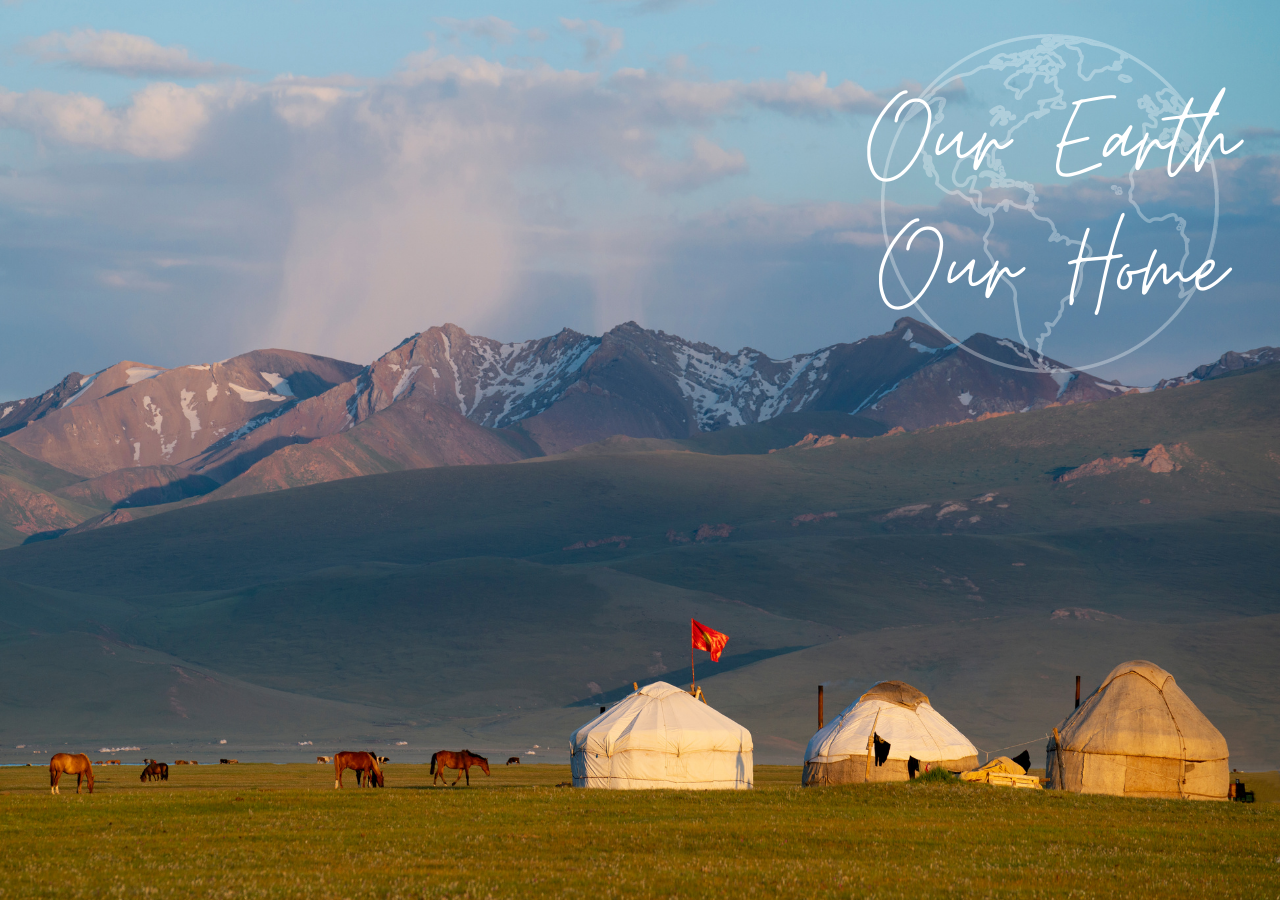The Kyrgyz horse plays an important role in the semi-nomadic lifestyle of such communities. Capable of carrying heavy loads and well adapted to the harsh climate and terrain of the Kyrgyz mountains, it is deeply valued by locals, and cherished in Kyrgyz culture and history.
Unfortunately, due to the effects of climate change, the Kyrgyz horse is at risk, and along with it the way of life that local communities have maintained for generations.
Similar stories emerge from neighbouring regions in this part of the world. Communities living in remote mountainous areas of Tajikistan, Afghanistan and Pakistan are accustomed to living in harmony with the environment and depend on farming or livestock herding to live. The impact of climate change has already begun to disrupt their livelihoods. As lands become infertile, water levels in rivers decline and ecosystems fall out of balance, those living an agrarian lifestyle suffer disproportionately.
Environmental degradation has also begun to cause significant loss of life and property. Changing weather patterns, accelerated melting of glaciers and rising sea levels have led to an increase in natural disasters, such as floods, avalanches, droughts, wildfires, hurricanes and landslides. Since the climate is changing more rapidly in mountainous areas than elsewhere, those living here are especially vulnerable.
Many areas have become unsafe to live in, forcing people to abandon their ancestral lands and traditional way of life. Others are holding on to the lives they know, coping with the effects of climate change as well as they can. Experts predict that if left unchecked, climate change could lead to more frequent natural disasters as well as widespread shortages of food and clean water. Vulnerable communities and those living in poverty face the highest risk.
Combating climate change is a formidable endeavour that will require action on multiple fronts. Some solutions are relatively straightforward, such as protecting natural habitats, phasing out the use of fossil fuels and exercising individual responsibility. Others will require complex innovation and research.
The Aga Khan Development Network’s (AKDN) efforts to combat climate change centre around engaging local communities and collaborating with local governments. In Afghanistan, the Aga Khan Agency for Habitat (AKAH) is working with the sustainable architecture firm Arup and the country’s National Environmental Protection Agency (NEPA) to define a new national commitment for climate action.
One simple yet effective solution is creating and restoring forests by planting trees. Trees absorb carbon dioxide from the atmosphere, helping to restore the natural balance of greenhouse gases and slow climate change. They also provide habitats for wildlife and reduce the risk of flooding by slowing water runoff. AKDN has helped to plant over 100 million trees in the past 50 years and continues to spearhead tree planting initiatives.
In Dasht-e-Dehkhaw, Afghanistan, a dangerous slope was stabilised by planting 3,500 trees. The plantation drive, organised by AKAH in collaboration with the local community, helped protect a village located below the slope from deadly landslides and rockfalls.
While disasters cannot be entirely averted, preparation can save lives. In the mountainous region of northern Pakistan, AKAH and the Aga Khan Foundation (AKF) have been working on initiatives such as first response training for community members, disaster risk assessments and emergency communication systems. These measures enable the community to respond to natural disasters promptly and effectively, and can prevent injury and loss of life.
In Kyrgyzstan, mountain communities that rely heavily on agriculture are vulnerable to poverty via agro-climatic shocks and food price fluctuations. AKF’s Mountain Societies Development Support Programme works with farmers to improve productivity and strengthen connections with livestock and fruit and vegetable markets. It also facilitates access to agriculture and livestock microcredit and loan products.
In Central Asia’s high mountain areas, AKDN is working to support and enhance the resilience and quality of life of societies through the generation and application of sound research, planting millions of trees, and supporting local communities with disaster planning and increasing agricultural production. In the process, they are helping to ensure that risks are mitigated and long-standing ways of life can continue for generations to come.








